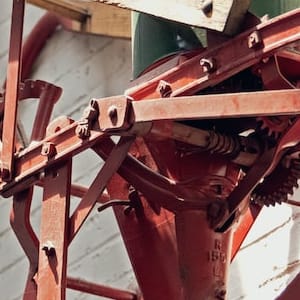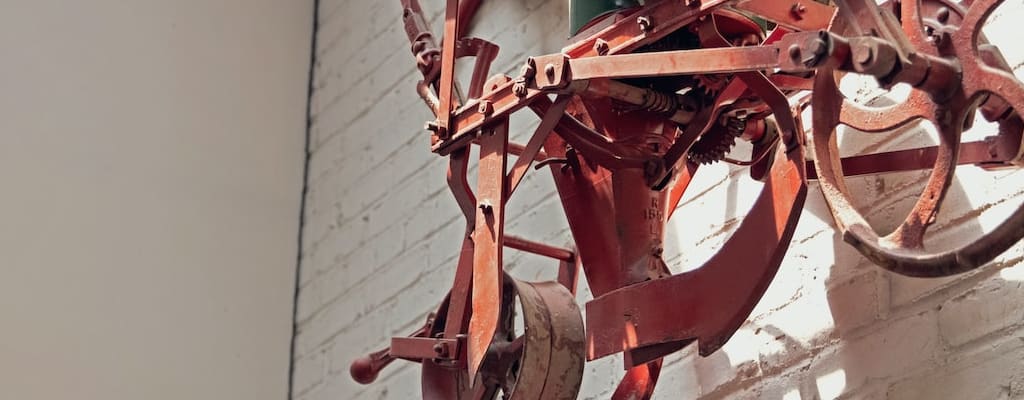plow on: Idiom Meaning and Origin
What does ‘plow on’ mean?
Idiom: plow on
Meaning: To continue doing something without paying attention to obstacles or difficulties.

Idiom Explorer
Unyielding perseverance
The idiom "plow on" has several different meanings and can be used in various contexts. Here are the facts about this idiom:
The literal meaning of "plow on" refers to the action of guiding a plow through the soil in order to cultivate or sow the land. This agricultural sense of the term comes from the use of a plow to break up and prepare the ground for planting.
Figuratively, "plow on" is often used to describe the act of persisting or continuing with a task or activity, despite difficulties or obstacles. It implies a sense of determination and perseverance.
The idiom can also convey the idea of moving forward steadily and with force, even in the face of opposition or resistance. It suggests a determined or unyielding approach to achieving a goal.
"Plow on" can be used in both positive and negative contexts, depending on the specific situation. It can indicate resilience and commitment, but it can also imply stubbornness or a refusal to change course.
Based on these facts, we can observe that the idiom "plow on" encompasses the ideas of persistence, determination, and steady progress. It suggests a willingness to overcome obstacles and continue with a task or goal, even when faced with challenges. This idiomatic expression conveys a sense of strength and resolve, highlighting the importance of perseverance in achieving success.
While the origins of the idiom are not entirely clear, its usage can be commonly found in both spoken and written English. It is often used in conversations or texts related to personal or professional endeavors, as well as in motivational or self-help contexts. The imagery of plowing through the soil and continuing onward despite difficulties resonates with individuals who seek to stay focused and dedicated to their objectives.
The idiom "plow on" captures the essence of perseverance and determination. Its metaphorical meaning serves to inspire and motivate individuals to remain steadfast in their pursuit of success, irrespective of the challenges they may face. This idiomatic expression reminds us that progress often requires unwavering commitment and the ability to overcome obstacles along the way.
When faced with challenges, it's important to "keep on" pushing forward. The phrase "keep on" is a related idiom that is often used interchangeably with "plow on." Both idioms convey the idea of persisting and continuing despite difficulties. However, "keep on" has a slightly different connotation. It suggests a sense of ongoing action or continuous effort. While "plow on" emphasizes determination and perseverance, "keep on" emphasizes the act of staying consistent and not giving up.
"keep on trucking" is another related idiom that shares similar meaning with "plow on" and "keep on." This idiom originated in America and gained popularity during the 1960s. It was often used by truckers to motivate themselves to keep going during long journeys. Today, it is used more broadly to encourage perseverance in any endeavor. "Keep on trucking" emphasizes the idea of moving forward steadily and persistently, much like a truck continuing on its journey without stopping. It embodies the spirit of not letting obstacles or setbacks deter one from reaching their goals.
The idiom "plow on" carries multiple meanings and can be applied in various contexts. Its literal meaning relates to the agricultural process of plowing the land. Figuratively, it conveys the concepts of persistence, determination, and steady progress. When faced with difficulties or obstacles, "plow on" encourages individuals to continue pushing forward and not give up. This idiom is often used interchangeably with "keep on" and "keep on trucking," which share similar meanings and serve to inspire and motivate individuals to remain dedicated to their goals. Ultimately, these idiomatic expressions remind us of the importance of perseverance in achieving success.
Example usage
Examples of how the idiom plow on can be used:
- Despite facing numerous setbacks, she decided to plow on and continue with her business venture.
- Feeling tired and uninspired, the writer forced himself to plow on and write a few more pages.
- Although some team members were ready to call it quits, the coach urged them to plow on and keep pushing to the end.
More "Persistence" idioms



